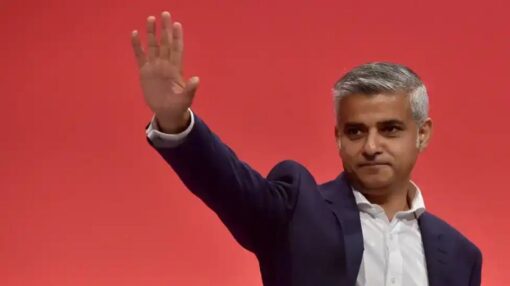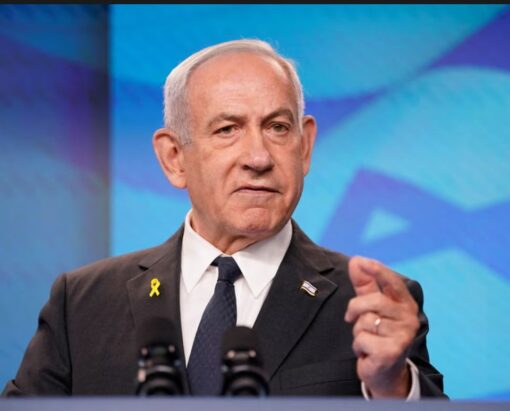U.S. President Donald Trump is once again at the centre of controversy after a fiery address to the United Nations General Assembly.
In his remarks, Trump attacked London’s mayor directly, making the claim that the capital is “so changed” under a “terrible, terrible mayor” and that “now they want to go to Sharia law.”
The comments have since ignited political backlash in Britain, where many have accused Trump of spreading misinformation and fuelling Islamophobia. The phrase Trump attacks Sadiq Khan quickly began trending online as leaders, campaigners and members of the public reacted to his statements.
A Familiar Rivalry
This is not the first time that Trump attacks Sadiq Khan. During his presidency, Trump frequently clashed with the London Mayor, especially following terrorist incidents when Khan urged calm and resilience.
Trump, instead, used those moments to criticise Khan’s leadership. By raising the issue again on one of the world’s largest diplomatic stages, Trump ensured the rivalry gained renewed international attention.
Trump’s suggestion that London is embracing Sharia law under Khan has no factual basis. London remains governed by UK law and its mayor has no power to alter the legal system.
Critics quickly highlighted that Trump’s remarks were not only inaccurate but also potentially damaging, feeding into divisive narratives about Muslims in Europe.

Sharia Law Claim Sparks Outrage
The most contentious part of the speech was Trump’s insistence that “they want to go to Sharia law” in London. Commentators have pointed out that the language appeared designed to alarm international audiences unfamiliar with the city.
In reality, Sharia law is not implemented in London or anywhere in the UK. The suggestion that Khan or his administration are pushing for such a change was described by Labour MPs as “outrageous” and “a complete falsehood.”
Sadiq Khan himself declined to offer a direct rebuttal, with his spokesperson stating that Trump’s words did not “deserve to be dignified with a response.”
However, other politicians were more vocal. One senior Labour MP noted that Trump’s use of the UN platform to launch a personal attack against a city mayor “was beneath the dignity of the occasion.”
Immigration and Energy in Trump’s Speech
Beyond his focus on Khan, Trump’s speech ranged more widely across European issues. He criticised immigration policies, suggesting that high levels of migration were “the death of Western Europe if something is not done immediately.” He also attacked European environmental policies, labelling renewable energy commitments as “suicidal energy ideas.”
While these themes are consistent with Trump’s past rhetoric, his decision to frame them through a direct attack on London and its mayor ensured the speech gained immediate international media coverage.
Many observers noted that his portrayal of Europe as being on the brink of collapse was an exaggeration intended to energise his supporters at home as much as to deliver a message abroad.
Political Responses in the UK
As the phrase Trump attacks Sadiq Khan circulated widely in UK headlines, political leaders rushed to condemn the remarks. Labour Party representatives called the attack “unfounded and dangerous,” while Liberal Democrats accused Trump of “scaremongering on the world stage.”
Some Conservative politicians, though critical of Trump’s tone, suggested that the controversy could distract from more urgent issues facing London, such as housing and transport. Yet even among Khan’s political opponents, few were willing to lend credibility to Trump’s suggestion of a shift towards Sharia law.
Commentators on UK news programmes stressed that Trump’s words risked inflaming tensions in multicultural communities. Many noted that the claim was not simply a personal attack on Khan, but a broader attempt to cast suspicion on London’s diverse population.
Media Reactions
British newspapers responded swiftly. Outlets across the political spectrum ran headlines emphasising that Trump had used false claims at the UN. The Guardian described his comments as “Islamophobic rhetoric dressed up as international diplomacy.” The Times highlighted the shock among diplomats present in the chamber, many of whom had not expected Trump to focus so personally on a city mayor.
Social media platforms were flooded with clips of the speech. In the UK, many Londoners expressed frustration at what they described as “a smear campaign against their city.”
Across the Atlantic, Trump’s supporters praised the remarks as another example of him “speaking truths that others fear to say.” The polarised reaction underscored how the phrase Trump attacks Sadiq Khan has become a recurring symbol of political division between the two figures.

The Bigger Picture
Analysts argue that Trump’s decision to revive his feud with Khan is part of a larger political strategy. By invoking themes of immigration, cultural identity, and national decline, he taps into the same populist rhetoric that propelled his earlier campaigns. Targeting Khan, one of the most prominent Muslim politicians in Europe, allows him to frame the debate in stark cultural terms.
However, critics warn that such rhetoric is both misleading and dangerous. They point out that the UK, far from adopting Sharia law, maintains a strong secular legal framework and continues to embrace diversity.
By spreading the opposite impression, Trump risks damaging international relations while also fuelling domestic division in Britain.
The latest incident in which Trump attacks Sadiq Khan demonstrates how deeply personal rivalries can be used to advance broader political narratives. By singling out London’s mayor at the UN, Trump brought his long-running feud onto the international stage, sparking outrage and renewed debate.
For many in Britain, the remarks are yet another reminder of the former president’s willingness to use inflammatory rhetoric without regard for accuracy.
For his supporters, they reinforce his image as a blunt truth-teller. Regardless of interpretation, what remains clear is that Trump’s words will continue to echo — in London, in Washington, and far beyond.


